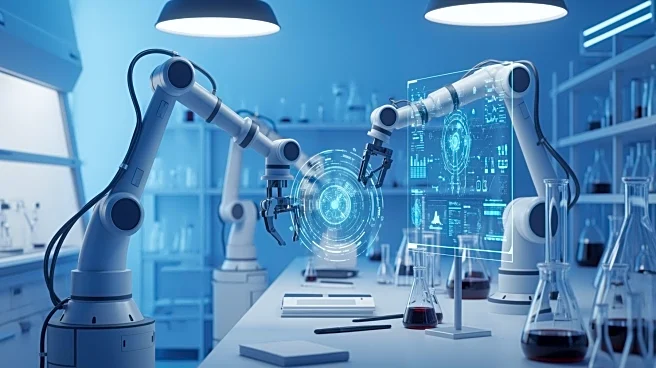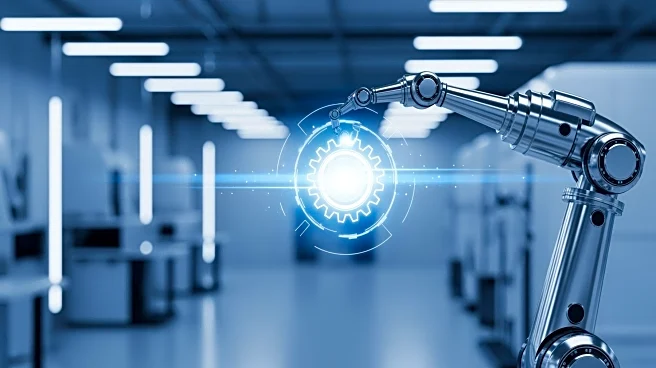What's Happening?
The bio/pharma industry is navigating the impact of artificial intelligence (AI) on workforce dynamics and hiring practices. During a panel discussion at CPHI Frankfurt, industry leaders highlighted the need for upskilling and attracting tech talent amidst
competition from big tech companies. The integration of AI, robotics, and supercomputing is transforming manufacturing processes, requiring organizations to rethink talent management and skill development. The discussion also addressed challenges such as organizational resistance to change and biases in AI-driven recruitment processes.
Why It's Important?
AI is reshaping the bio/pharma industry by enhancing efficiency and innovation in manufacturing and research. However, the rapid adoption of AI technologies presents challenges in workforce management, as companies must adapt to new skill requirements and attract tech-savvy professionals. The industry's ability to leverage AI effectively will determine its competitiveness and ability to innovate. Addressing biases in AI recruitment processes is crucial to ensuring fair and equitable hiring practices.
What's Next?
Bio/pharma companies may continue to invest in upskilling programs and partnerships to attract tech talent and address skill gaps. The industry will likely explore strategies to mitigate biases in AI recruitment and enhance organizational agility. As AI technologies evolve, companies will need to adapt their workforce management practices to remain competitive and innovative.
Beyond the Headlines
The integration of AI in bio/pharma highlights broader ethical and cultural implications, such as the need for responsible AI design and the impact on traditional career paths. The industry's approach to AI adoption may influence public perception and regulatory frameworks.















